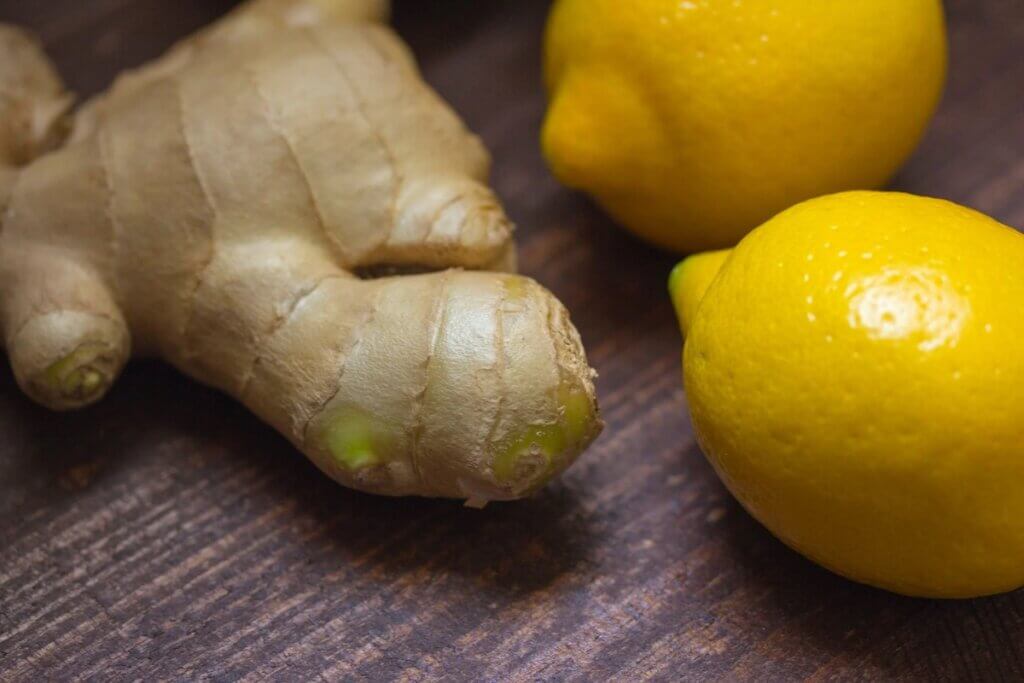It’s quite common to experience digestive troubles while undergoing chemotherapy and even for some time after treatment. Since many chemotherapies target fast-growing cells, like cancer cells, they can disrupt the growth of some cells involved in digestion. In some cases, vomiting, nausea, diarrhea, and constipation can be the result, all of which can be uncomfortable and make it difficult to get proper nutrition.
Thankfully, the side effects of chemotherapy are manageable. At Dana-Farber, patients that experience these digestive side effects are often referred to a registered dietitian like Liz Puris, MS, RD, LDN, of Dana-Farber’s Nutrition Services. Registered dietitians are licensed to make tailored dietary and lifestyle recommendations that help patients ease their digestive symptoms and maintain an overall healthy diet.
Here are some general tips for managing nausea, diarrhea, and constipation, and for navigating a lack of appetite.
Managing nausea
Nausea can be managed through your diet — what you eat and how — but anti-nausea medications like Zofran and Compazine are also very effective.
Adjusting how you eat may be the key to alleviating nausea. Eating many small portions throughout the day can be a good way to ensure that you are eating enough while keeping nausea at a minimum.
“Eating infrequently can actually increase feelings of nausea as stomach acid builds,” says Puris.
Dietitians also recommend:
- Sitting upright for at least a half hour after meals.
- Avoiding fragrant foods and sticking with bland foods. The feeling of nausea is often linked with strong odors. Chilled foods will have a weaker scent and dietitians recommend getting protein from sources like cold chicken or hard-boiled eggs.
- Natural remedies like ginger, lemon, and mint.
- Getting plenty of fluids

Lack of appetite
A decreased appetite might be linked to feelings of nausea or there may be another cause. For example, chemotherapy can make certain odors or textures that we once enjoyed unpalatable.
“This can be one of the more challenging symptoms since patients simply don’t have the internal cue to eat,” says Puris.
She recommends finding an external reminder to eat whether that be a caregiver or a certain time of day. Other strategies for managing a lack of appetite have crossover with those used to manage nausea. Dietitians recommend:
- Eating small meals throughout the day. It’s important to ensure that these meals are “high impact” and pack a lot of calories, protein, and other nutrients into a small portion. Dried fruits, like dates, and nuts, are an excellent example of high impact snacks.
- Drinking nutrient dense smoothies may also be a good strategy for maintaining your health while struggling with a lack of appetite. They can often be easier to digest than solid foods.
- There are also a variety of appetite stimulant medications. Some patients might also consider cannabis for appetite issues.
Constipation
Eating a lot of fiber is also usually recommended by dietitians for dealing with constipation, but it’s important to stick with insoluble fiber which can be found in many raw fruits and vegetables, nuts, seeds, and dried fruit.
Lots of fluids are recommended, generally around two liters or 64 ounces a day, but a dietitian can make a more specific recommendation based on your size.
“You don’t really want all that fiber without something to help move it along,” Puris says. “Especially if you aren’t used to a high-fiber diet.”
Diarrhea
When experiencing diarrhea, it’s still important to drink lots of liquids since you may be losing them during a bowel movement.
To alleviate the symptom, follow the opposite recommendation for constipation. Avoid insoluble fibers and focus on soluble fibers, which are found in the interior of many fruits, like an apple without the skin, or in cooked vegetables. Soluble fibers will help absorb the water that’s in the digestive system, and as Puris puts it, “slow things down.”
Stick to bland foods, like bananas, rice, and applesauce, that are easy to digest, and as with other digestive issues, eat small meals throughout the day. Specifically, avoid spicy and fatty foods. “They can be stimulants to the digestive tract,” Puris explains.
Difficulty swallowing
Some patients, especially those with head and neck cancers, will experience trouble swallowing for various reasons including operations and side effects from chemotherapy and radiation. At Dana-Farber, difficulty swallowing is often evaluated by a speech language pathologist along with a dietitian. Together, specialists can help you work on a diet and strengthening exercises best for you. You can read more about swallowing difficulties here.
Seeing a dietitian
At Dana-Farber, dietitians specialize in helping patients wherever they are in their cancer journey. Some patients go to dietitians without any chemotherapy side effects. Others make the visit as survivors many years after treatment.
For your first appointment, you should be prepared to provide the dietitian with a good overview of what you eat every day. They will also want to know about any allergies that you have, any cultural or religious beliefs that affect your diet, and any digestive issues you are facing. After a conversation about eating habits, they will be able to educate, make recommendations about what foods to eat and which to avoid, and provide sample meal plans.
If you are a Dana-Farber patient, ask your physician about seeing a dietitian and learn more about the m
